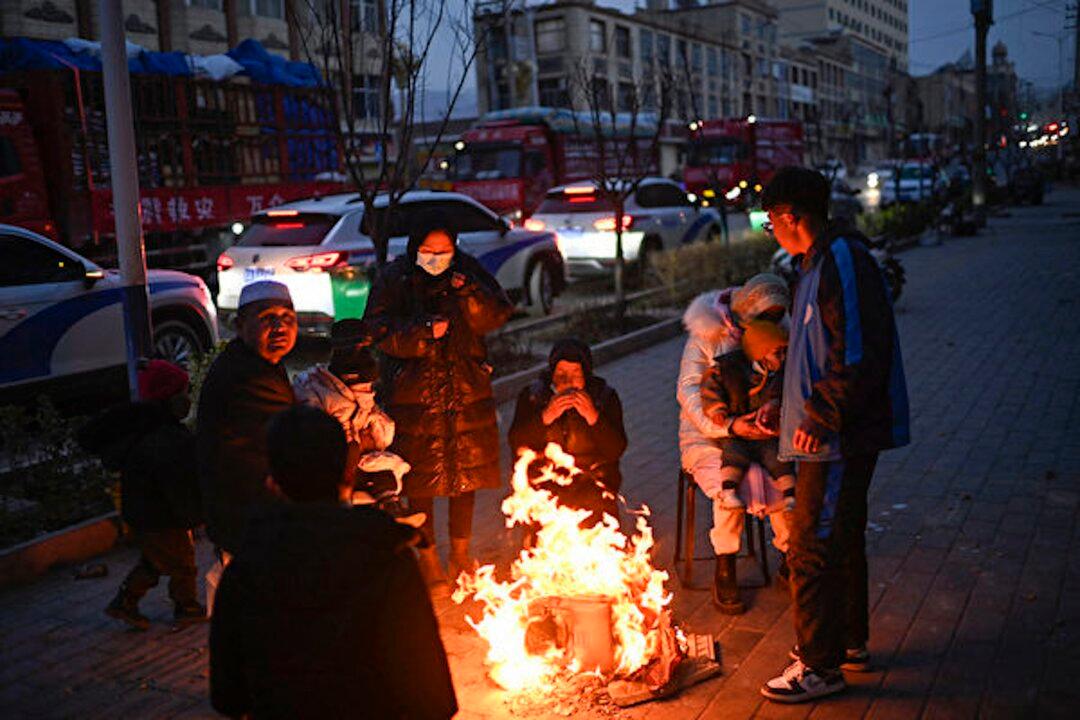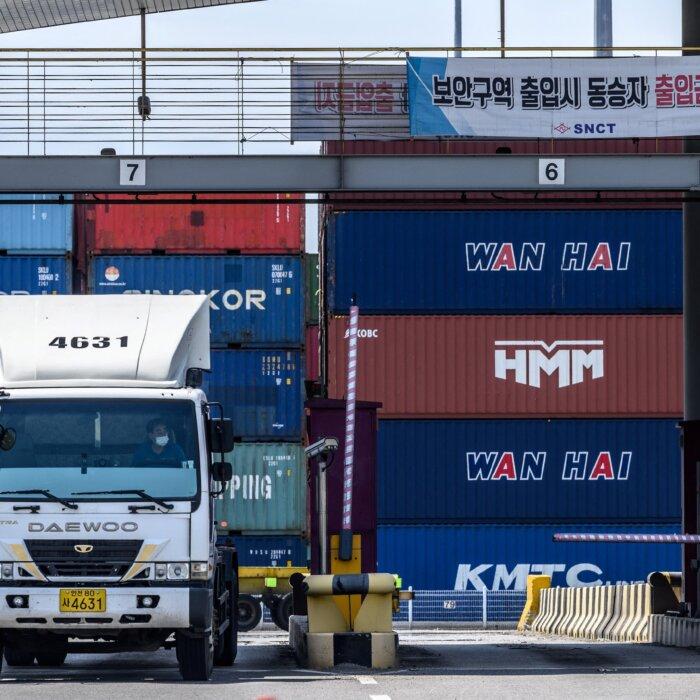Historically low temperatures have hit most parts of China this winter, and the national forecast is predicting that there’s more of the unusually frigid weather to come.
Southern provinces, in the subtropics, are seeing rare snowfalls, while the cold snap is hampering relief efforts in the northwest, where an earthquake destroyed thousands of homes and left survivors to light fires for warmth amid below-freezing temperatures. Meanwhile, strained budgets have left the Chinese communist regime without enough funds to clear snow from city streets or assist the quake survivors, residents say.
Following the last cold wave that swept China and shut highways just a few days ago, another round of strong cold air is hitting most parts of the country.
The Chinese Central Meteorological Observatory said on Dec. 19 that a new round of strong cold air had arrived, bringing extreme weather to most of China, in both the north and south, including low temperatures, heavy snow, freezing rain, and strong winds. It forecast that the country would experience a “freeze week” from Dec. 19 onward and potentially yet another cold wave from Dec. 26–27, when another mass of cold air could bring more strong winds and freezing temperatures to China’s central and eastern regions.
The earlier cold had already brought with it rain, snow, cold temperatures, and strong winds. More than 30 percent of China experienced a sharp drop in temperature of more than 10 degrees C (18 degrees F). Historic December lows were reached at 30 national weather stations across China, with 145 national weather stations reporting daily snowfall exceeding December high-snowfall records.
The second cold wave that began on Dec. 19 brought temperatures further down by 4 to 8 degrees C (7.2 to 14.4 degrees F) on top of the already ultra-low temperatures in parts of the northwest, north, and east.
The Central Meteorological Observatory issued low-temperature warnings on Dec. 19.
“The cold wave has come. It’s been very cold these days. It’s snowing,” Mr. Wang, a resident of Guangxi Province at the southern tip of China in the subtropics, told The Epoch Times on Dec. 18.
“The temperature is indeed the lowest for the same period in at least the past 20 years,” Mr. Li, in Henan Province, said. “It has also not snowed this much for many years.”
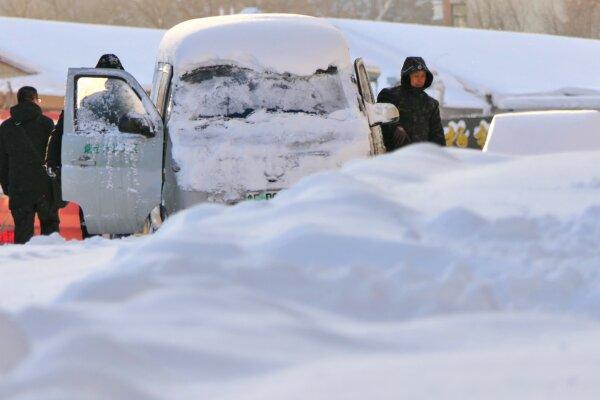
Beijing’s Extreme Weather Alerts Continue
On Dec. 19, the Beijing Meteorological Observatory said that with the arrival of the cold wave, strong northerly winds would start again, with gusts reaching level 7. The temperature reached a low of minus 12 degrees C (10.4 degrees F) on Dec. 19 and Dec. 20. The maximum temperature was minus 8 degrees C (17.6 degrees F), along with a significant wind chill.Currently, weather warnings are in place for icy roads and persistent low temperatures in Beijing, along with an advisory about strong winds.
Ms. Huang, who has lived in Beijing for more than 20 years, told The Epoch Times on Dec. 18 that this year’s winter has been the coldest she remembers in 20 years.
“Beijing hasn’t had such heavy snow in many years. It must be 2–3 centimeters [0.8–1.2 inches] in depth, which is quite thick.”
Mr. Chen, a Hebei native who works in Beijing, told The Epoch Times on Dec. 18: “I’m leaving Beijing today. It’s too cold. The wind is howling, and now, it’s minus 12 degrees C [10.4 degrees F].
“I haven’t seen such heavy snow in more than 20 years. It has snowed for three days, and now the roads are covered with ice.
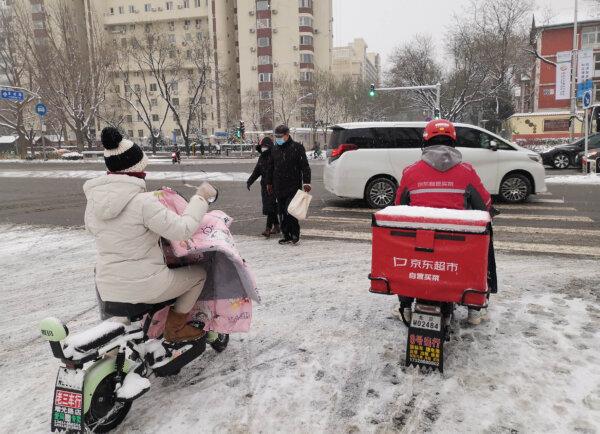
“The snow in Beijing this time is so heavy that the roads have not even been cleared of it yet.
“Because of the financial deficit and lack of money in local governments’ finances in various places, city sanitation workers refuse to work without being paid. Over these two days, the city can only rely on manual shoveling of snow, and they do not drive big snow plows to the streets to shovel.”
Because the ruling Chinese Communist Party’s (CCP) central government is located in Beijing, the snow there won’t be allowed to get out of hand, Li Hengqing, a U.S.-based economist, told The Epoch Times. However, snow removal has become a big problem for many other northern cities in China.
“The local governments still owe the money for last year’s shoveling snow and have not paid the IOUs yet,“ Mr. Li said. ”Then this year, they asked people to shovel snow, but those snow shoveling companies and service companies have refused to provide the services. The governments now have to bring cash to ask them to remove snow.”
The Central Meteorological Observatory said on Dec. 19 that from Dec. 20 to 21, some areas in northeast China, northern China, and other places were expected to experience record lows. The highest temperature in Harbin on Dec. 20 was minus 21 degrees C (minus 5.8 degrees F); that was the first time temperatures fell below minus 20 degrees C this winter, which is uncommonly cold.
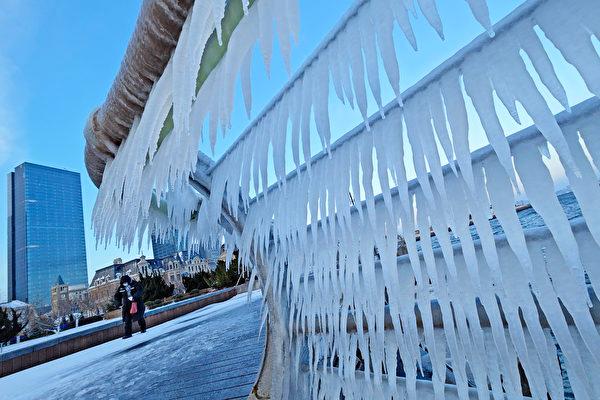
The forecasts also said that cold air would push into southern China, with freezing conditions expected to advance south of the Yangtze River into the northern part of southern China on Dec. 22. Predictions indicated that Hefei, Nanjing, Hangzhou, Wuhan, Shanghai, and Changsha would all fall below freezing and might exceed record low temperatures.
Gansu Earthquake Survivors Stranded Outdoors in Deep Freeze
A 6.2 magnitude earthquake hit Jishishan County of Linxia Prefecture, Gansu Province, in northwest China, on Dec. 18, killing at least 126 and injuring more than 700. Many buildings and houses collapsed in the earthquake. However, only 15 hours after the earthquake, the CCP announced that the rescue work was over, leaving victims stranded outdoors in the freezing temperatures. The earthquake survivors and evacuees have been lighting fires in the streets and near their ruined houses to keep warm.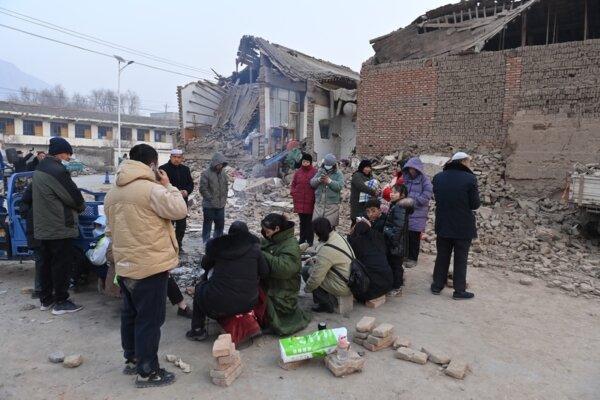
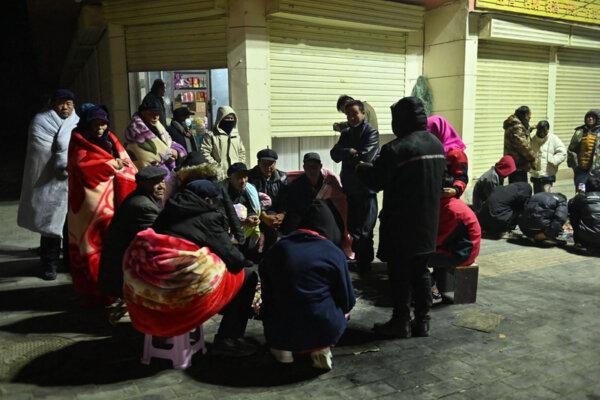
According to the Central Meteorological Observatory, the lowest temperature in Jishishan County, the epicenter, could reach minus 10 to minus 14 degrees C (14 to 6.8 degrees F) in the next 10 days.
Mr. Zheng, a villager in Jishishan County, told The Epoch Times: “We have not received real rescue and relief yet.
“Our houses cannot be inhabited now. We set up tents in front of our homes and lit a fire. Children and the elderly sat in front of the fire to keep warm.”
